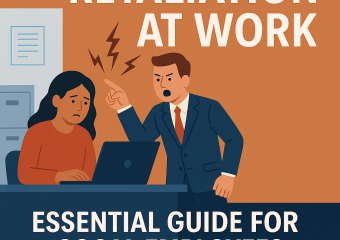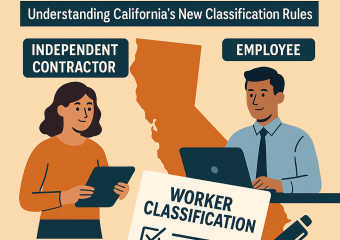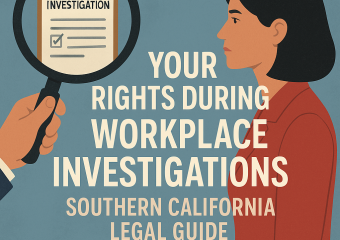Palm Springs Employment Contracts: 7 Red Flags Before You Sign
When considering a new job opportunity, the employment contract is one of the most important documents you will encounter. Palm Springs employment contracts often come with unique clauses and stipulations that can impact your professional and personal life. Understanding the nuances before signing can save you from potential headaches and legal troubles down the line. Here, we explore seven common red flags to watch out for in employment contracts, especially in the Palm Springs job market, to ensure you make an informed decision.
1. Ambiguous Job Responsibilities and Expectations
One of the first red flags in any employment contract is vague language regarding your job duties. If your role, responsibilities, or reporting structure aren’t clearly defined, it could mean the employer intends to change or expand your duties without additional compensation or renegotiation. In the dynamic business landscape of Palm Springs, clarity is crucial to avoid misunderstandings or exploitation.
2. Overly Restrictive Non-Compete Clauses
Non-compete clauses are quite common, but when they’re too broad or restrictive, they could severely limit your future career options. Palm Springs employment contracts might include non-compete agreements that prohibit you from working in the area or in any similar industry for an extended period. Such limitations can be detrimental, especially in a region with close-knit industries like hospitality or real estate. Make sure the scope and duration of a non-compete agreement are reasonable before signing.
3. Ambiguous Compensation and Benefits Terms
Your salary and benefits package should be explicitly spelled out. Watch for clauses that allow the employer to alter your pay or benefits without notice or your consent. Some employment contracts contain language that ties bonuses or raises to subjective performance ratings or company profitability, which can be problematic in uncertain economic times, such as those experienced recently in the Palm Springs market.
4. One-Sided Termination Clauses
Check how the contract addresses termination. A red flag is any clause that allows the employer to terminate your employment without cause with little or no notice or severance, while you are required to provide a lengthy notice period if you resign. Balanced termination provisions are essential for protecting your job security. Palm Springs, like most places, has employment laws, but written contracts often override default protections unless they are blatantly unfair.
5. Mandatory Arbitration and Waiver of Legal Rights
Many employers include mandatory arbitration clauses, which require disputes to be resolved outside of court. While arbitration can be quicker and less costly, these clauses can limit your ability to take legal action, including joining class-action lawsuits or appealing decisions. Carefully consider how this might affect your rights, especially in a region like Palm Springs where local industries can sometimes be prone to labor disputes.
6. Restrictions on Side Jobs or Entrepreneurial Activities
In Palm Springs, many professionals and creatives engage in side gigs or entrepreneurial ventures alongside their primary employment. Contracts that completely prohibit outside work or require you to disclose and get approval for any side project may hamper your ability to develop multiple income streams. Look for any clauses that may restrict your freedoms beyond your main job, as this is often a red flag signaling excessive control.
7. Incomplete or Missing Intellectual Property Clauses
If your role involves creating content, designs, inventions, or any intellectual property (IP), ensure that the terms regarding ownership are clear. Some contracts assign all IP rights to the employer, even for work developed on your own time or unrelated to the job. In the vibrant creative and tech scenes of Palm Springs, preserving your IP rights is crucial should you want to leverage your ideas in the future.
Final Thoughts: Protect Yourself Before Signing
Palm Springs employment contracts come with their own set of local nuances and expectations. Identifying these seven red flags—ambiguous duties, restrictive non-competes, unclear compensation, one-sided termination terms, mandatory arbitration, overreaching restrictions, and vague IP ownership—is key to making an informed decision about your next job.
Before signing any agreement, consider consulting with an employment lawyer familiar with California labor laws and the Palm Springs market. A thorough review can highlight potential pitfalls that may not be obvious at first glance. Ultimately, the goal is to secure a contract that supports your career growth while safeguarding your rights and freedoms.
Remember, a job offer is a two-way street. Just as you expect commitment from your employer, your contract should reflect fairness, clarity, and mutual respect. Taking the time to understand every clause can empower you to negotiate better terms or walk away if the deal isn’t right. Your future self will thank you for being diligent now.




